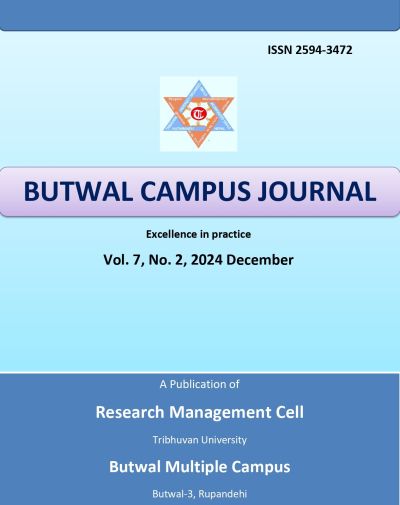Perspectives and Practices of English Language Teachers on Task-Based Language Teaching
DOI:
https://doi.org/10.3126/bcj.v7i2.73185Keywords:
Constructivist theory, phenomenological study, learner centered pedagogy, humanistic approach, benefits and challenges of TBLTAbstract
Task-Based Language Teaching (also called TBLT) is a popular and innovative approach to language instruction. The present study aimed to explore the perspectives and practices of TBLT in EFL classrooms. To achieve this, the researcher purposively selected five secondary-level English teachers from Butwal sub-metropolitan city of Rupandehi district. A semi-structured interview was the primary tool and technique for data collection. The collected data were thematically analyzed under six headings, including teachers’ perspectives on the task-based method, tasks and activities, and classroom pedagogy. The findings reveal that TBLT is a learner-centered approach that enhances communication, critical thinking, and problem-solving through real-world tasks. It integrates language skills via collaborative activities, fostering motivation and autonomy. Teachers act as facilitators, guiding and assessing tasks for fluency, accuracy, and skill transfer. Despite challenges like time constraints and assessment complexities, TBLT effectively bridges classroom learning with practical language use through meaningful, engaging, and well-planned activities.The study underscores the importance of incorporating TBLT into EFL curricula to develop practical language abilities and critical thinking skills. It highlights the need for teacher training in task creation, classroom management, and assessment methods. Syllabus designers, textbook writers and policymakers can tackle challenges such as limited time and resources by linking assessment techniques with communicative objectives.
Downloads
Downloads
Published
How to Cite
Issue
Section
License
Copyright is held by Research Management Cell, Butwal Multiple Campus

